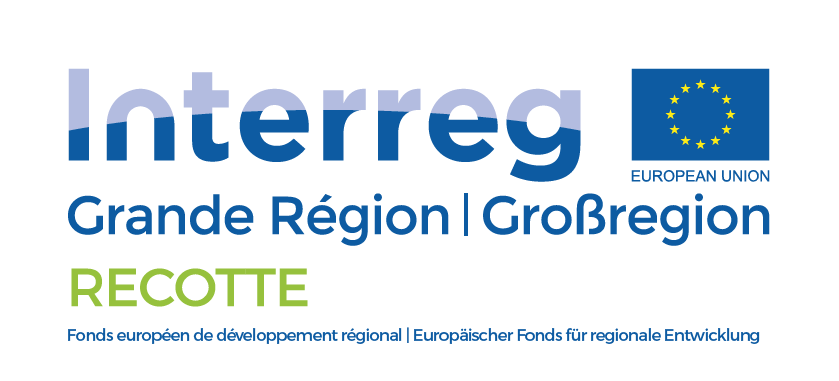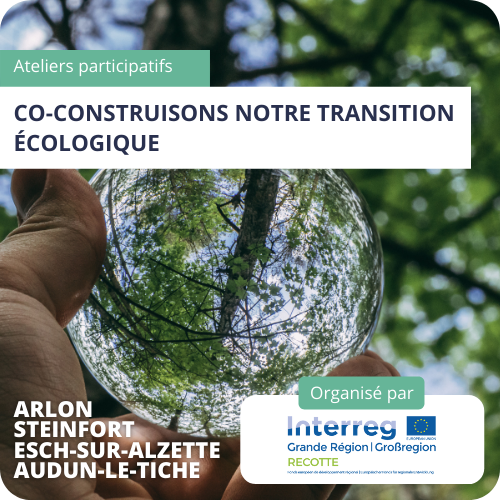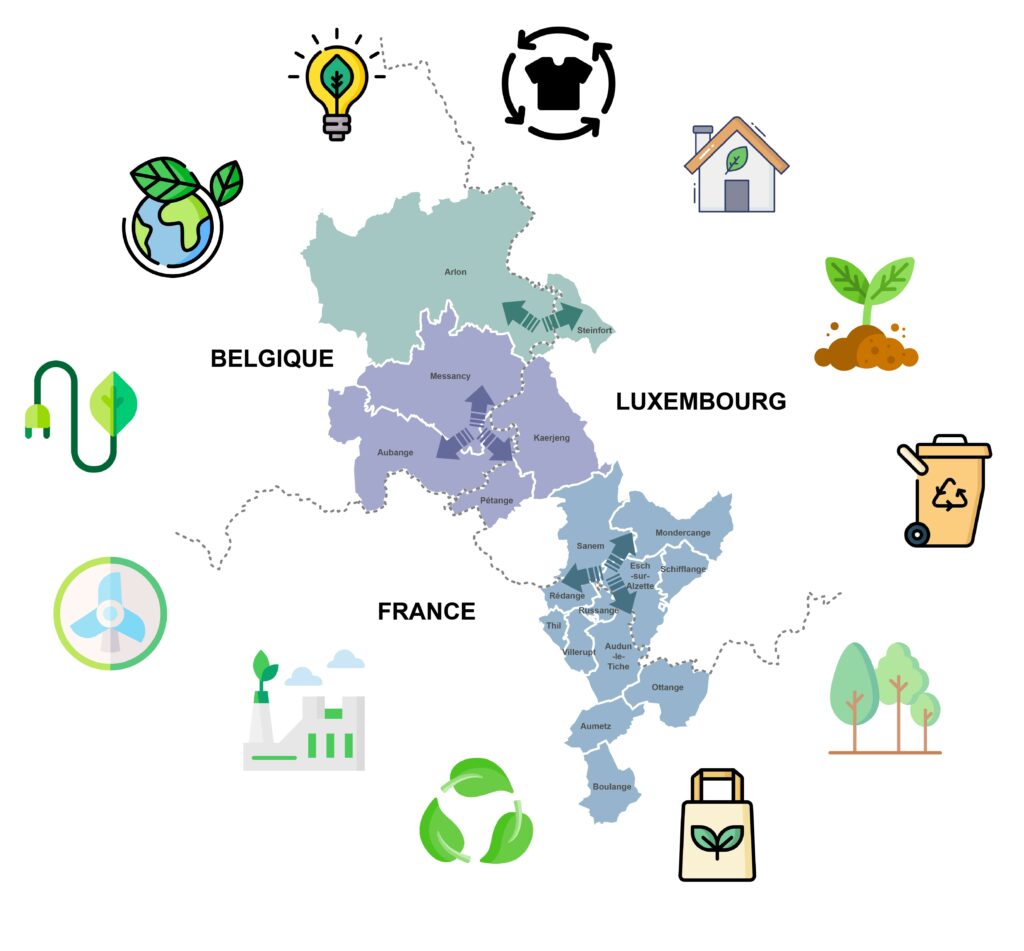
Are you a citizen or a professional in the area of ecological transition ? You are invited to participate in the cross-border workshops in the Arlon-Messancy-Aubange and Kaërjeng-Steinfort-Pétange-Esch-sur-Alzette regions to co-construct a cross-border ecological transition.
Register now for the RECOTTE workshops to help new projects emerge around ecological transition!

The RECOTTE project is centred on the repurposing of land for ecological transition at a local, cross-border level.
The European Union and its member states have set out frameworks to encourage regional communities to initiate a process of transition, but local authorities seem insufficiently organised and equipped to respond to climate change and the energy transition. They also have high expectations, particularly in technical terms, when it comes to implementing specific policies and measures as put forward in the European Green Deal and National Energy Climate Plans.
Ecological transition must be a gradual progress and enjoy the backing of a number of different stakeholders. It cannot be achieved without the involvement of citizens and institutional support, and this is the only means of stimulating the changes necessary to adapt our ways of life and fostering a universal acceptance of the objectives and measures to make ecological transition a success across national frontiers.
That being said, at a local cross-border level, the dynamics of the transition process in one country are not necessary the same in another country, and the national border remains an obstacle to joint action on both sides of a national frontier.
One of the goals of the RECOTTE project is to bring together relevant stakeholders in local cross-border communities and draw attention to shared and complementary aspects of efforts to achieve ecological transition in three specific target cross-border areas.
The RECOTTE project is geared towards accompanying and assisting local stakeholders in their ecological transition processes while leveraging potential cross-border synergies and inviting local stakeholders to become involved in pivotal joint projects.
To propose an innovative methodology to define cross-border priorities and initiatives at a local level that are aimed at achieving ecological transition
To help implement a resilient cross-border system that is able to prioritise creativity and innovation in the face of future environmental, economic and social risks and rise to the challenges of ecological transition
To test this methodology on three cross-border urban centres in former industrial areas of Wallonia, France and Luxembourg that feature varying circumstances and intensities of cross-border cooperation: the Alzette-Belval cross-border area, Messancy/Aubange/Pétange/Kaerjeng and Arlon/Steinfort

Accompany and assist local communities and stakeholders in resolving any issues linked to the ecological transition
Propose a means of realising this accompaniment and assistance in a cross-border context
Supporting elected officials and local actors in urgently changing their behaviour in the face of climate risks
Redefine cross-border cooperation as an ecological necessity rather than in terms of economic development
Identify potential courses of action